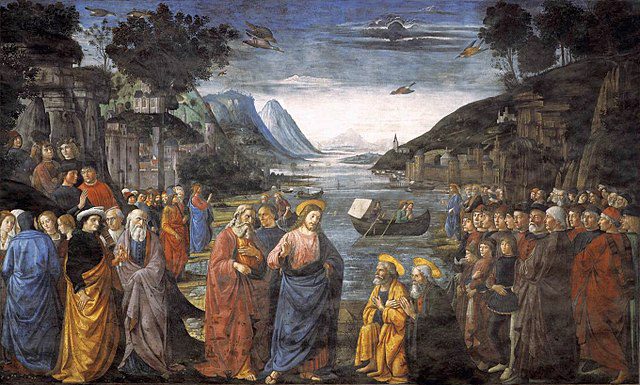
I’ve already noted how He did this in the case of the rich young ruler: which passage appears immediately before the one we will shortly examine:
Luke 18:26-30 (RSV) Those who heard it said, “Then who can be saved?” [27] But he said, “What is impossible with men is possible with God.” [28] And Peter said, “Lo, we have left our homes and followed you.” [29] And he said to them, “Truly, I say to you, there is no man who has left house or wife or brothers or parents or children, for the sake of the kingdom of God, [30] who will not receive manifold more in this time, and in the age to come eternal life.”
That said, what is specifically mentioned is leaving things in order to follow Jesus (house, wife, brothers, parents, children) and “for the sake of the kingdom of God”. These are, of course, good works, but of a particular kind: penance or renunciation or voluntarily suffering for the kingdom. And they are meritorious: with rewards not only in heaven but also “manifold more in this time.”
All of this is very Catholic indeed, over against Protestant teaching, which renounces merit, good works as directly tied to justification and salvation (in grace and with faith), and also the notion of penance and redemptive suffering. But there it is in Scripture, and it is not an uncommon theme at all, as I have shown in several other related papers:
Armstrong vs. Collins & Walls #8: Heretical Tobit? (Alms & Salvation)
St. Paul on Grace, Faith, & Works (50 Passages)
Grace, Faith, Works, & Judgment: A Scriptural Exposition
Bible on Participation in Our Own Salvation (Always Enabled by God’s Grace)
Justification: Not by Faith Alone, & Ongoing (Romans 4, James 2, and Abraham’s Multiple Justifications)
St. Paul’s Use of the Term “Gift” & Infused Justification
Philippians 2:12 & “Work[ing] Out” One’s Salvation
“The Lord Helps Those Who Help Themselves” [National Catholic Register]
***
Photo credit: Calling of the Apostles (1481), by Domenico Ghirlandaio (1449-1494) [public domain / Wikimedia Commons]
***

















